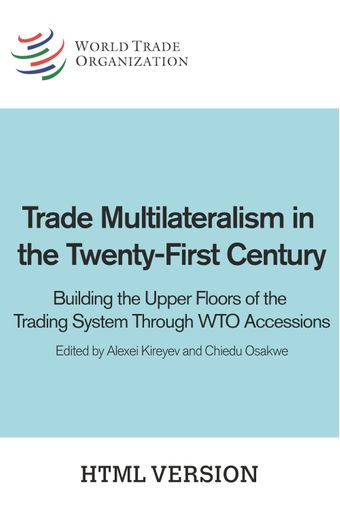WTO Accession Negotiations from a Negotiator’s Perspective

- De : Atsuyuki Oike
- Source: Trade Multilateralism in the 21st Century , pp 14-14
- Publication Date: janvier 2017
- DOI: https://doi.org/10.30875/70f7aa8c-en
- Langue : Anglais
This chapter considers political, commercial and legal aspects of accession negotiations and the compromises by all parties involved to make accession to the World Trade Organization (WTO) a reality. Using the negotiations on the accessions of the Russian Federation and Samoa as case studies, this chapter analyses how political constraints, economic interests and legal commitments affected the course of the negotiations. In the case of the Russian Federation, the focus was on certain investment programmes in the automotive industry that were deemed inconsistent with the Agreement on Trade-Related Investment Measures (TRIMs). Agreement on these measures required prolonged negotiations, including at ministerial levels, to find a satisfactory solution for all parties involved. In the case of Samoa, attention was focused on the appropriate level of flexibility to be granted to a least-developed country (LDC), as the expansion of LDC membership is a priority for the Organization, in accordance with the Guidelines on LDCs’ accessions. The chapter concludes that the experience of accession negotiations has helped to define domestic reform in acceding members, clarify the application of WTO provisions in practice, upgrade regional integration frameworks and counter negative political pressures. These lessons can be used in negotiations by other acceding economies and constitute important building blocks of the upper floors of the international trading system.
-
From This Site
/content/books/9789287046789s009-c007dcterms_subject,pub_countryId-contentType:WorkingPaperSeries -contentType:Periodical -contentType:BookSeries -contentType:ReportSeries105


